Research assistance
Members

Assistante ingénieure
CNRS
Tel: 04 72 44 81 42
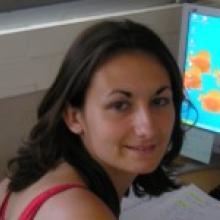
Ingénieure d'études
CNRS
Tel: 33 04 72 43 29 17
Technicien CDD
CNRS

Assistant ingénieur
UCBL
Adjointe technique
UCBL
Tel: 33 04 72 44 79 17

Assistant ingénieur
CNRS
Tel: 33 04 72 43 29 29
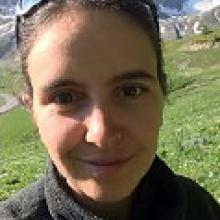
Assistante ingénieure
CNRS
Tel: 04 72 44 81 42
Stagiaire
CNRS
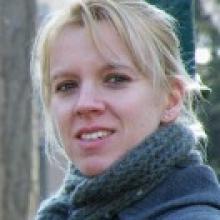
Ingénieure de recherche
CNRS
Tel: 33 04 72 43 29 14
Technicienne CDD
UCBL

Technicienne
UCBL
Tel: 33 04 72 43 29 15

Ingénieur d'études
CNRS
Tel: 33 04 72 44 58 72
Adjointe technique
UCBL
Tel: 04 72 44 81 42
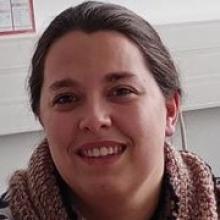
Technicienne
CNRS
Tel: 04 72 44 81 42
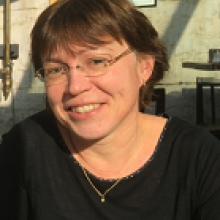
Assistante ingénieure
UCBL
Tel: 04 72 43 29 14

Technicien
UCBL

Ingénieur de recherche
CNRS
Tel: 04 72 43 29 29
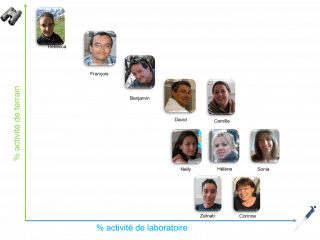
The “pole biotechnologique” brings together a range of bioengineering expertise for the development of tools and approaches for research in evolutionary biology; and operational competences to ensure their logistical and technical implementation.
Since it was set up, the biotechnology hub has perpetuated insect breeding activities, including several species of drosophila, but also Venturia and Bemisia for example. These breeding activities are carried out on artificial medium or plants. We ensure laboratory logistics (e.g. autoclave, stock management, ...) as well as safety aspects, and develop devices (e.g. via 3D printing) to feed experimental research in the laboratory focusing on evolutionary genomics, behavioural ecology and functional ecology.
Our expertise is also solicited to organize field work, in metropolitan France and internationally, and to carry out population monitoring of terrestrial mammals (e.g. roe deer, marmots, feral cats, bats) and birds (dipper). In addition to capture (e.g. trapping, netting), marking and monitoring of animals, we implement experimental approaches in natura, collect biometric, behavioral and physiological data, biological samples (blood, secretions, hair, faeces, biopsy, ...) and characterize the study environments (installation of sensors, aerial imaging by drones, construction of digital models of terrain ...).
Finally, the biotechnology hub offers the technical resources and skills to analyse a wide variety of biological samples in the laboratory through an multidisciplinary prism. The complementarity and synergy of our competences are expressed in the fields of molecular biology (PCR, qPCR, construction of libraries for the genesis of ohmic data), cell biology (confocal microscopy, flow cytometry), and biochemistry (characterization of metabolic, endocrine and oxidative profiles).
Rehabilitation work was done at the LBBE in 2022 and lead to a significant expansion of the experimental space. These new premises allow us to increase our capacity, to offer new spaces and modern tools dedicated to behavioral approaches. These new premises also allow us to widen the spectrum of our activities by developing new techniques (e.g. cell culture, Crispr/cas9, RNAi, ...).
In all our activities, we regularly welcome and supervise trainees and students of all levels. For any questions or information request, do not hesitate to contact us
Publications
Display of 241 to 259 publications on 259 in total
Strain-specific regulation of intracellular Wolbachia density in multiply infected insects
Molecular Ecology . 12 : 3459-3465
Journal article
see the publicationSuperoxide activates a GDP sensitive proton conductance in skeletal muscle mitochondria from king
Biochemical and Biophysical Research Communications . 312 : 983-988
Journal article
see the publicationWORLDWIDE DISTRIBUTION OF TRANSPOSABLE ELEMENT COPY NUMBER IN NATURAL POPULATIONS OF DROSOPHILA SIMULANS
Evolution - International Journal of Organic Evolution . 57 ( 1 ) : 159-167
Journal article
see the publicationEvolution of genome size in Drosophila. is the invader`s genome being invaded by transposable elements?
Molecular Biology and Evolution . 19 : 1154-1161
Journal article
see the publicationInsertion polymorphism of retrotransposable elements in populations of the insular endemic species Drosophila madeirensis
Molecular Ecology . 11 : 347-354
Journal article
see the publicationThe diet of feral cats (Felis catus L.) at five sites on the Grande Terre, Kerguelen archipelago
Polar Biology . 25 : 833-837
Journal article
see the publicationGlider and Vision: two new families of miniature inverted-repeat transposable elements in Xenopus laevis genome
Genetica . 108 : 163-169
Journal article
see the publicationWake up of transposable elements following Drosophila simulans worldwide colonization
Molecular Biology and Evolution . 16 ( 9 ) : 1251-1255
Journal article
see the publicationTransposable elements and genome evolution: the case of Drosophila simulans
Genetica . 107 : 113-120
Journal article
see the publicationPhylogenetic evidence for horizontal transmission of Wolbachia in host-parasitoid associations
Molecular Biology and Evolution . 16 : 1711-1723
Journal article
see the publicationA novel tropomyosin isoform encoded by the Xenopus laevis α-TM gene is expressed in the brain
Gene . 207 ( 2 ) : 235-239
Journal article
see the publicationA temperature cline in copy number for 412 but not roo/B104 retrotransposons in populations of Drosophila simulans
Proceedings of the Royal Society B: Biological Sciences . 265 ( 1402 ) : 1161-1165
Journal article
see the publicationInhibition of sex pheromone communications of Trichogramma Brassicae (Hymenoptera) by the insecticide chlorpyrifos
Environmental Toxicology and Chemistry . 17(6) : 1107-1113
Journal article
see the publicationThe distribution of minisatellites in the human, pig and rat genome reflects the history of rearrangements involving chromosome-ends
Animal Genetics . suppl. 2 : 75
Journal article
see the publicationThe distribution of minisatellites in the human, pig and rat genome reflects the history of rearrangements involving chromosome-ends
XXV International Conference on Animal Genetics, International Society for Animal Genetics .
Conference paper
see the publicationThe cloning and characterization of a cDNA encoding Xenopus laevis DNA ligase I.
Gene . 172 ( 2 ) : 273-7
Journal article
see the publicationThe Xenopus laevis TM-4 gene encodes non-muscle and cardiac tropomyosin isoforms through alternative splicing
Gene . 156 ( 2 ) : 265-270
Journal article
see the publicationDetection, cloning, and distribution of minisatellites in some mammalian genomes
DNA Fingerprinting: State of the Science . : 47-57
Book chapter
see the publicationDetection, cloning, and distribution of minisatellites in some mammalian genomes.
EXS . 67 : 47-57
Journal article
see the publication